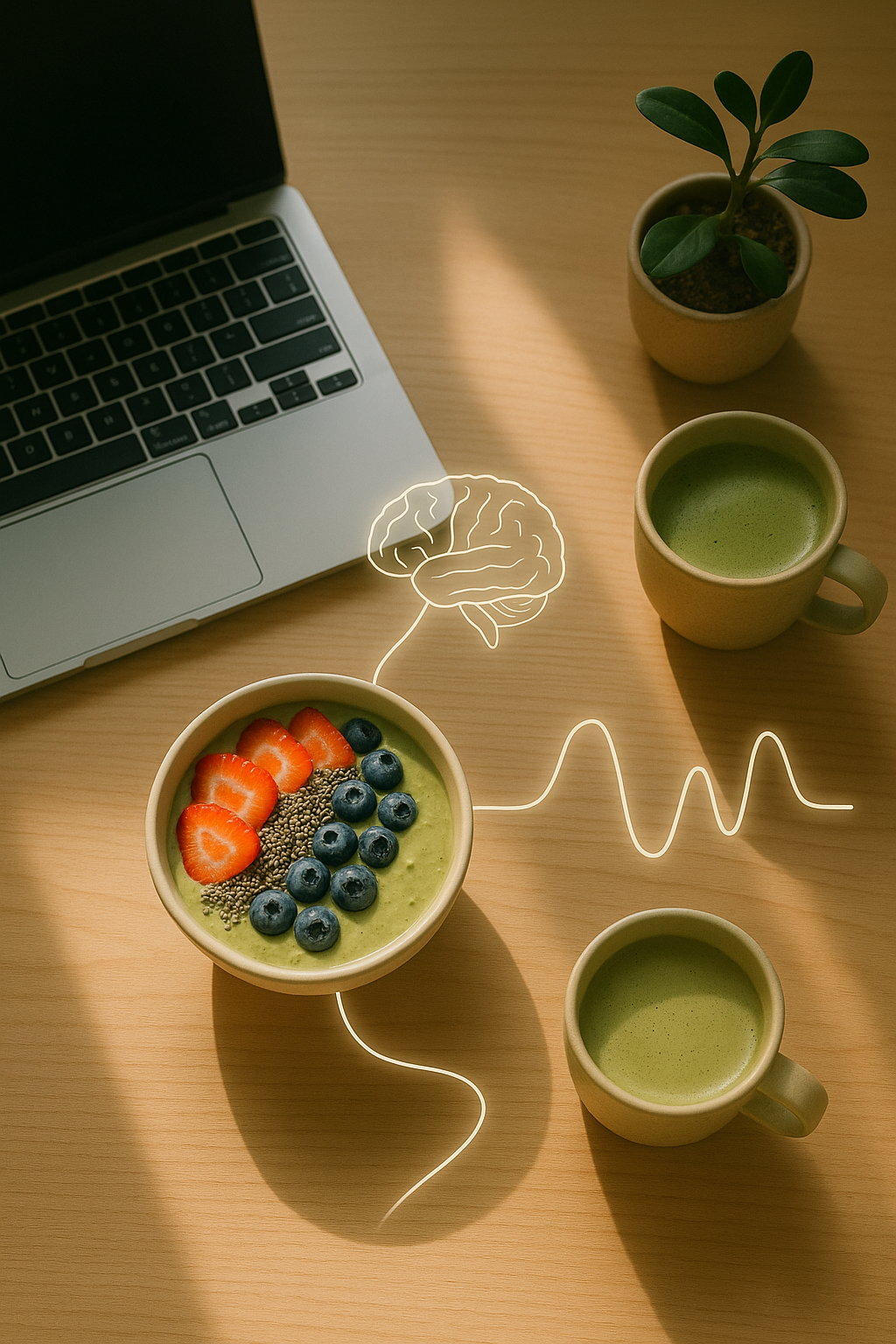Food and Focus: The Science of Stable Energy

Many of us know the dreaded "2 p.m. slump"—a wave of fatigue and brain fog that makes focusing nearly impossible. While we often blame sleep, research points to blood sugar regulation as a key factor influencing mental clarity.
The energy rollercoaster
When you eat high-glycemic foods like pastries, white rice, or sugary drinks, blood glucose levels spike rapidly. Your body releases insulin to bring them back down, often causing a sharp dip known as "reactive hypoglycemia." These fluctuations can trigger irritability, reduced focus, and even anxiety (Benton & Nabb, 2003).
In contrast, balanced meals with protein, fiber, and healthy fats slow down digestion, releasing glucose gradually and providing steady energy for the brain (Micha et al., 2017).
Nutrients that sharpen the mind
Protein: Amino acids from protein are precursors to neurotransmitters like dopamine and norepinephrine, which enhance motivation and focus. Think eggs, lentils, or lean meats.
Omega-3 fatty acids: Abundant in fatty fish (salmon, sardines) and chia or flax seeds, omega-3s are linked with improved memory, attention, and reduced risk of cognitive decline (Gómez-Pinilla, 2008).
Complex carbohydrates: Whole grains and vegetables provide glucose—the brain's primary fuel—without the spikes and crashes of refined carbs.
Practical swaps
- Replace white rice with quinoa or brown rice.
- Choose a handful of nuts over chips for a snack.
- Pair fruit with yogurt to balance natural sugars with protein.
The workplace impact
A randomized controlled trial in the UK found that employees who ate more fruits and vegetables reported higher wellbeing and productivity just one day later (Conner et al., 2015). The science is clear: nutrition is not just about physical health—it's a performance tool.
References
Benton, D., & Nabb, S. (2003). Carbohydrate, memory, and mood. Nutrition Reviews, 61(5), S61–S67. https://doi.org/10.1301/nr.2003.may.S61-S67
Conner, T. S., et al. (2015). Let them eat fruit! The effect of fruit and vegetable consumption on psychological well-being. British Journal of Health Psychology, 20(2), 413–427. https://doi.org/10.1111/bjhp.12113
Gómez-Pinilla, F. (2008). Brain foods: The effects of nutrients on brain function. Nature Reviews Neuroscience, 9(7), 568–578. https://doi.org/10.1038/nrn2421
Micha, R., et al. (2017). Association between dietary factors and mortality from heart disease, stroke, and type 2 diabetes in the US. JAMA, 317(9), 912–924. https://doi.org/10.1001/jama.2017.0947